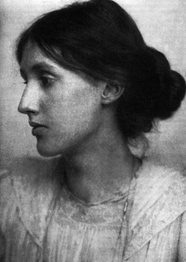
I can never make up my mind about Woolf, or rather I should say about her writing. When I first discovered her writing I was enthralled by the long, vague, lifting remember reading sentences; by the focus on minutiae and the psychological rather than the plot. It was a revelation to read novels where very little happened – but so much was said, explored, mentioned.
A Room of One’s Own is probably her most famous piece of non-fiction. Essentially a series of essays/ lectures examining women’s place in fiction, it begins by looking at the history of women’s writing – and lack of it. She imagines a sister to Shakespeare – Judith – and the difficulties she would face even attempting to emulate her brother’s work. (Incidentally of course this means you can thank Woolf for Sacred Heart).
The most famous assertion in A Room of One’s Own is the one suggested in the title: 'a woman must have money and a room of her own if she is to write fiction'. This idea is also at the heart of many criticisms levelled at Woolf – that she was incapable of thinking outside her upper-middle class circle, of thinking about the challenges women from different backgrounds may face, of sympathising with women (and men) for whom having a room was a matter of economic, class-based or racial, disadvantage and discrimination.
I think she was a gateway to feminism to me, a realisation that some questions, discussions and arguments were older than I had thought. Perhaps if she had lived longer she would have expanded or refined her views but she was killed by depression.
Squeamish Louise

 RSS Feed
RSS Feed
